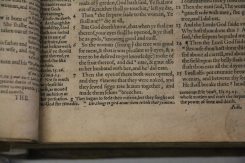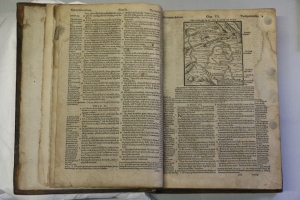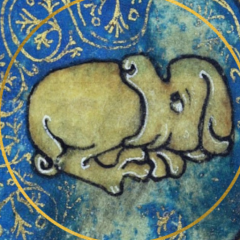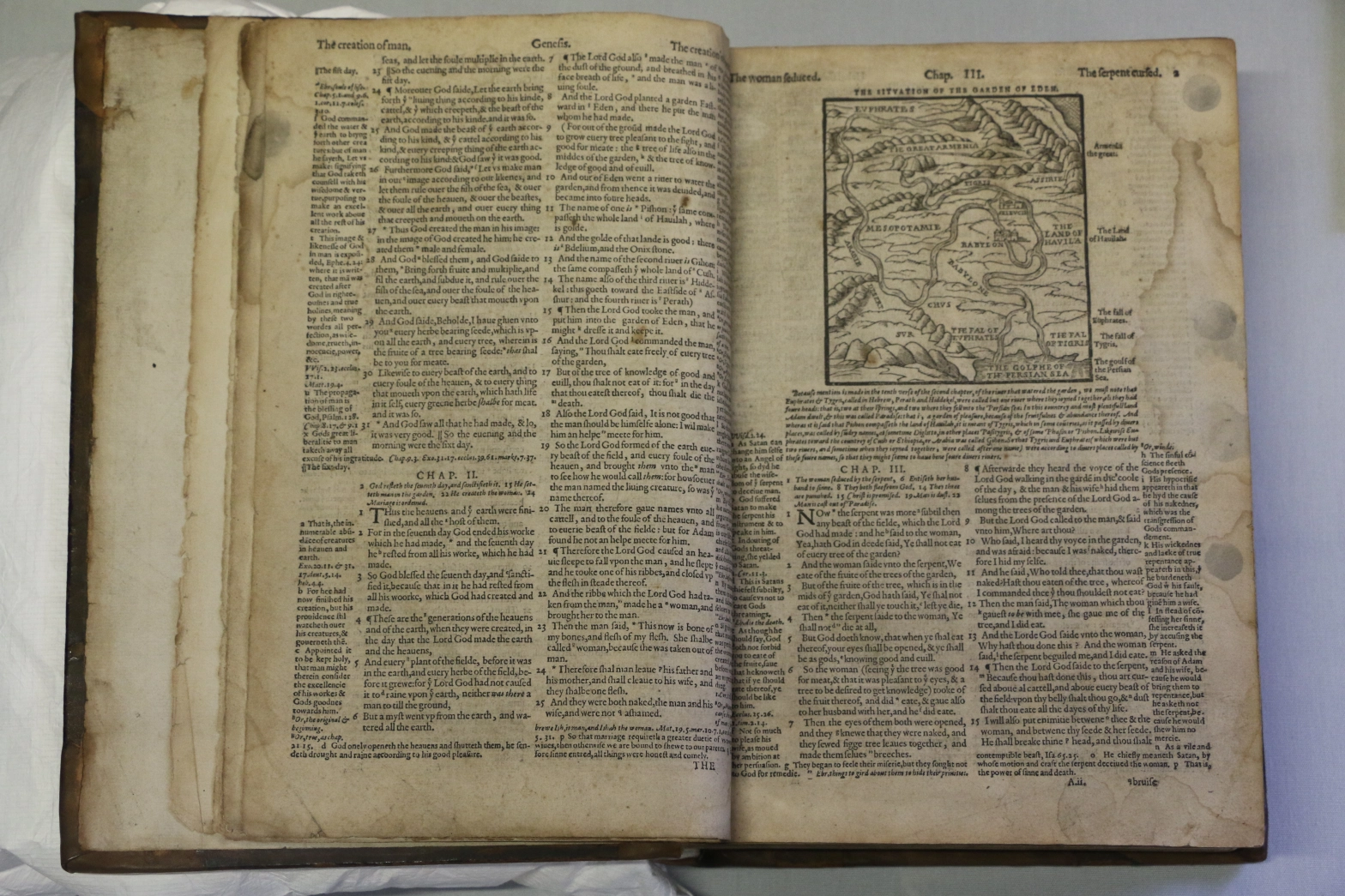In September 2015, The Sheppard-Worlock Library’s Special Collections received, on long-term loan, a Geneva or ‘Breeches’ Bible belonging to St. Bridget’s in West Kirby. It is a 1582 reprint by Christopher Barker of the 1577 edition.
The ‘Breeches’ Bible is so-called after the use of the word in the translation of Genesis 3:7 in the Geneva version of the English Bible.

“Then the eyes of them both were opened, and they knew that they were naked, and they sewed figge tree leaves together, and made themselves breeches”
During the reign of Queen Mary I, many Protestant scholars fled from England to Geneva, Switzerland to avoid persecution. Among these scholars was William Whittingham who supervised the translation, now known as the Geneva Bible, in collaboration with Myles Coverdale. He was probably born in Chester in 1524 and married John Calvin’s sister-in-law in 1555.
Whittingham’s translation of the New Testament in 1557 was the first appearance of a critical text of the Scriptures in Roman typeface; using verse divisions to facilitate quotation and supplying in italic those words not present in the original, yet required to complete the sense in English.

The Geneva Bible contained a number of study aids, including woodcut illustrations, maps and explanatory ‘tables’, i.e. indexes of names and topics, in addition to the extensive marginal notes. Each book was preceded by an ‘argument’ or introduction, and each chapter by a list of contents giving verse numbers.
The Geneva Bible was immediately established as an authoritative translation genuinely based on the Hebrew and Greek originals and ran through over 140 editions, even after the appearance of the Authorised Version. Notably, in 1620 it was the Geneva Bible not the King James Version that was brought to North America by the Puritans aboard the Mayflower. Its popularity is also attested by its widespread citation by writers and ecclesiastics of the later sixteenth century, including Shakespeare whose plays after 1595 appear to favour the Geneva text.
The Geneva Bible was the preferred Bible of Anglican and Puritan Protestants during the Elizabethan Age, however, King James I, who claimed the throne of England in 1603, very much disliked it. Apparently, his distaste for the Geneva Bible was not necessarily upon all the translations of the numerous passages into English, but mostly the annotations in the margins. In all likelihood, he saw the Geneva’s interpretations of biblical passages as anti-clerical ‘republicanism’, which could imply church hierarchy was unnecessary. Hypothetically, it followed that the need for a king as head of church and state could also be questioned. King James commissioned a new translation and in 1611 the Authorised Version or the King James’ Bible was printed by Robert Barker, the King’s printer.
The Breeches Bible, 1582, and the Authorised Version dated 1639, from the Gradwell Collection, are currently on display in The Sheppard-Worlock Library.


I have a Geneva breeches bible been in my family for generations inscribed inside christenings from 1609 bible dated 1599 with New Testament.I am the last surviving member of the family.what to do with it now.
David Harrison
How wonderful. Perhaps you could do some genealogy. The DNA test can lead to the discovery of family members you never knew you had! We look at the inscriptions of family histories held in the flyleaves of Bibles with our undergraduate students, it can be very revealing about the past and society.
Depending on the part of the country where you live, there might well be a local or state museum that would treasure the volume and share it with a larger public. Alternatively, there are historical & genealogical organizations that would care properly for it.